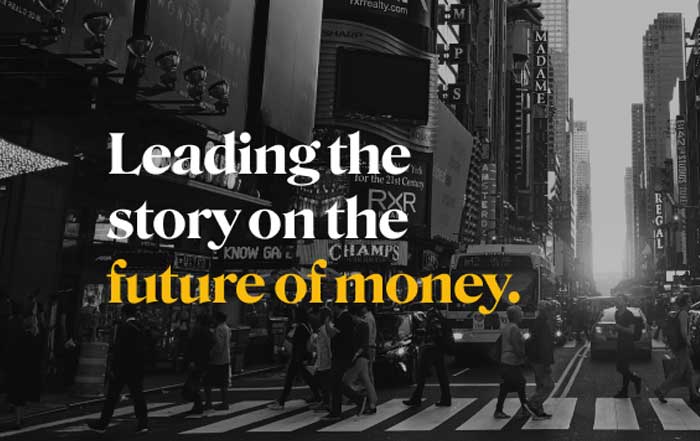Africa is still growing as a dynamic region for financial technology, or fintech, driven by the continent’s rapid adoption of mobile banking and digital payment solutions. With vast numbers of the population remaining unbanked or underbanked, fintech companies have capitalized on the opportunity to provide financial services through technology, disrupting traditional banking systems. This growth has not only attracted local entrepreneurs but also significant international investment. Many of these fintech companies have progressed to the point where they are now publicly traded on African stock exchanges, further signaling the sector's maturity and the substantial role it plays in the continent's economy.
Fintech in Africa isn't just about payments; it spans a wide range of financial services, including lending, insurance, and investments. The industry has been instrumental in increasing financial inclusion and supporting the growth of small and medium-sized enterprises (SMEs). As a result, these fintech companies are now playing a critical role in shaping Africa's economic landscape. This article takes an in-depth look at some of the largest fintech companies currently listed on African stock exchanges, shedding light on their growth, influence, and the potential they hold for the future of financial services across the continent.
The Emergence of African Fintech Companies on Stock Exchanges
African fintech companies began to attract attention in the early 2010s, when mobile money solutions like M-Pesa in Kenya revolutionized the way people managed their finances. The success of mobile money platforms opened the floodgates for innovation in financial services, from online lending platforms to digital wallets and insurance tech. Over time, many fintech startups that started small have grown into large enterprises, some of which are now listed on Africa’s major stock exchanges, including the Johannesburg Stock Exchange (JSE), the Nigerian Stock Exchange (NGX), and the Nairobi Securities Exchange (NSE). Listing on the stock market allows these companies to raise capital for further expansion and also gives the general public a chance to invest in the fintech revolution.
M-Pesa and Safaricom: The Pioneers of African Fintech
One cannot discuss African fintech without highlighting Safaricom’s M-Pesa, which remains one of the largest and most influential fintech solutions on the continent. M-Pesa, launched in 2007, revolutionized mobile banking by allowing millions of people across Kenya and later other African nations to conduct financial transactions via their mobile phones, even without traditional bank accounts. Safaricom, the telecommunications company that operates M-Pesa, is listed on the Nairobi Securities Exchange (NSE) and is one of the largest and most valuable companies on the exchange.
M-Pesa has played a crucial role in the growth of Safaricom’s stock value, as the service has grown to become the dominant mobile money platform not just in Kenya but across several African countries. With millions of users and billions in transaction volumes, Safaricom has positioned itself as a fintech giant in Africa, leveraging M-Pesa’s success to drive further innovation in the financial services sector. The company’s stock is often seen as a barometer of the health of Kenya’s broader tech and telecommunications sectors.
Interswitch: Nigeria's Fintech Powerhouse
Interswitch is another significant player in the African fintech ecosystem and one of the largest fintech companies in Nigeria. Known for its payment processing solutions and ATM services, Interswitch has been a key enabler of Nigeria's transition to a cashless economy. Although it initially focused on facilitating electronic transactions within Nigeria, Interswitch has since expanded its services to other African countries and now operates across the continent.
Interswitch is listed on the Nigerian Stock Exchange (NGX), and its presence has had a profound impact on the exchange's fintech sector. The company has developed numerous products and services that cater to both individual users and businesses, such as Verve, a domestic debit card solution, and Quickteller, an online payment platform. As Nigeria continues to push towards greater digital inclusion, Interswitch’s stock has become a crucial part of the fintech investment landscape, offering investors exposure to the country’s growing digital economy.
African Fintech Companies
JSE and Fintech: The Growth of Financial Technology on the Johannesburg Stock Exchange
The Johannesburg Stock Exchange (JSE) is one of the largest and most sophisticated stock exchanges in Africa, and several fintech companies have leveraged the platform to raise capital and expand their operations across the continent. South Africa, with its highly developed financial markets, has been a fertile ground for fintech innovation, and the JSE has become a central hub for fintech listings.
One prominent example of a fintech company listed on the JSE is Discovery Limited. While traditionally known as a health insurance company, Discovery has embraced fintech through its Vitality program and other digital financial services. The company’s use of data and technology to create personalized financial products has made it a leader in the fintech space in South Africa. Discovery’s innovative use of technology to improve customer engagement and financial outcomes has set the company apart, and its stock is considered one of the most attractive fintech investments on the JSE.
Another important fintech company listed on the JSE is Purple Group. Specializing in online investment platforms, Purple Group operates EasyEquities, a low-cost platform that allows South Africans to invest in local and international stocks. EasyEquities has been a game-changer in terms of democratizing access to financial markets, making investing accessible to a broader segment of the population. This fintech-focused business model has attracted a large and growing customer base, which in turn has driven the company's stock performance.
Jumia: Africa’s E-commerce and Fintech Hybrid
Jumia is another notable company that has leveraged the convergence of e-commerce and fintech to become a major player on the African continent. Though primarily an e-commerce platform, Jumia has increasingly integrated fintech solutions into its operations, offering JumiaPay as a digital payment platform that facilitates online transactions across the region. While Jumia is listed on the New York Stock Exchange (NYSE), it remains a critical player in Africa's fintech space due to its vast reach across multiple African countries.
The company’s ability to blend e-commerce with fintech has allowed it to capture a significant share of Africa’s growing digital economy. JumiaPay, in particular, has been instrumental in driving the company’s growth, allowing consumers to transact securely online. The integration of financial services into its e-commerce platform is a testament to the company’s commitment to creating a holistic digital ecosystem. Jumia’s stock has seen fluctuations due to the volatility of e-commerce markets, but its fintech arm continues to hold considerable potential for growth as more Africans embrace digital financial solutions.
Chipper Cash: The Rising Star of African Fintech
Chipper Cash is one of Africa’s fastest-growing fintech companies, offering peer-to-peer payment services across multiple African countries. The company has gained popularity by providing free and low-cost payment transfers, making it a hit among users looking for a cost-effective way to send money across borders. Though not yet listed on a stock exchange, Chipper Cash is considered a fintech unicorn, valued at over $1 billion, and has been the subject of speculation regarding an initial public offering (IPO).
If Chipper Cash decides to list on an African stock exchange, it would undoubtedly become one of the most sought-after fintech stocks, given its rapid growth and expanding user base. The company’s innovative approach to cross-border payments has filled a significant gap in Africa’s financial services sector, and its potential listing would further cement its role as a key player in the fintech ecosystem.
Flutterwave: Another Nigerian Fintech Giant Poised for Listing
Flutterwave, another Nigerian fintech company, has made waves in the African fintech space with its innovative payment solutions designed to simplify digital transactions for businesses and individuals. The company has grown rapidly, facilitating billions of dollars in transactions across Africa and helping businesses accept payments from customers globally. Like Chipper Cash, Flutterwave is not yet listed on a stock exchange, but there have been growing calls for an IPO in recent years.
A potential listing on the Nigerian Stock Exchange (NGX) or the Johannesburg Stock Exchange (JSE) would mark a significant milestone for Flutterwave, further solidifying Nigeria's reputation as a fintech powerhouse. The company’s innovative approach to payment processing, coupled with its strong partnerships with global brands like PayPal, has made Flutterwave one of the most exciting fintech companies on the continent. Investors are eagerly awaiting its public offering, which could bring a new wave of interest in African fintech stocks.
The Future of Fintech Listings in Africa
The growth of fintech companies on African stock exchanges is a clear indicator of the sector's importance to the continent's economic future. With companies like Safaricom, Interswitch, Discovery, and Purple Group leading the way, the stage is set for further innovation and expansion within Africa's fintech landscape. As more fintech companies reach maturity and look to raise capital, we can expect to see additional listings on African stock exchanges in the coming years.
This trend reflects not only the success of individual fintech companies but also the broader shift towards digital financial services that is transforming Africa's economy. For investors, the rise of fintech on African stock exchanges represents a unique opportunity to be part of a rapidly growing sector that is fundamentally changing the way people access and manage their finances. Whether through established players like Safaricom and Discovery or rising stars like Flutterwave and Chipper Cash, the future of fintech in Africa looks incredibly promising. The continued growth and success of these companies will undoubtedly shape the future of finance on the continent for years to come.




